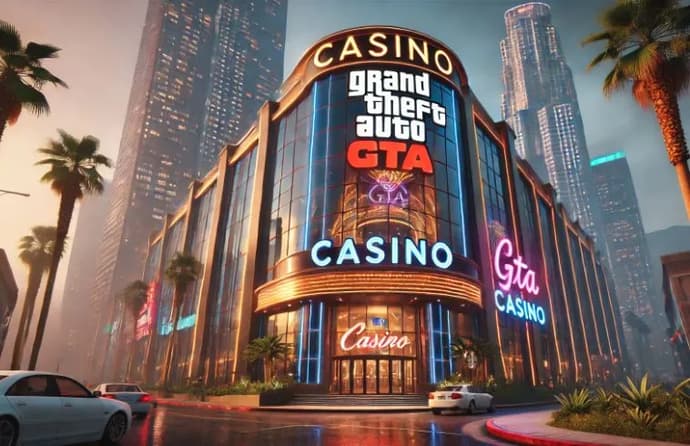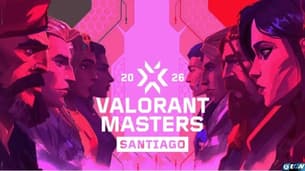
The Blurred Lines Between eGaming and iGaming

Innovation and technology have further blurred the boundaries between these popular forms of digital entertainment. Whether you are an industry professional or a casual player, the chances of being inclined to play both are high. With the GTA casino which worked as a real casino the borders became even less visible. Let’s clear things up and learn why it’s important!
What is eGaming?
Those born before the turn of the millennium might remember playing video games like Super Mario, Street Fighter, or Sonic the Hedgehog on a console or PC. The engagement and interaction of players with video games significantly increased with the advent of consoles with internet and Wi-Fi capabilities. In 2006, the ability to connect and play online multiplayer games with anyone, anywhere, marked the beginning of the eGaming revolution.
While some games involve risks, the emphasis is on skill rather than chance. Free online games are widely available, and payments are primarily limited to hardware and software purchases, subscription fees, and in-game purchases. All activities associated with playing video games via a network for fun and entertainment fall under the umbrella of eGaming.
The Rise of iGaming
In contrast, iGaming refers to gambling activities conducted via a digital connection. The term is defined as betting on the future outcome of a game of chance or competitive sporting event. It applies to sports betting, online casinos, live dealer casino games, poker, lottery, and more. The billion-dollar iGaming industry encompasses a wide spectrum of diverse interests, including game developers like NetEnt and Playtech and various platform operators, who interact with end-users.To be frank, iGaming was just a nicer moniker for the industry to steer the attention away from the harms associated with gambling. This is an Euro-centric term that appeared in the years when the industry moved their operation to the tax oasis of Malta. From this point it has become so easy to launch new casino brands in Europe just by slapping new designs on the same software that it has left consumers overwhelmed. Expert casino comparison sites specializing in new casino reviews like the Dutch nieuwe-casinos.net have stepped in to make things easier.
Where the Two Worlds Converge
The iGaming industry remains at the forefront of emerging technologies and has not stood still in identifying differences and recognizing growth opportunities by applying elements of eGaming. Both markets revolve around gaming entertainment. A player who plays action games today might want to try thrilling games of chance tomorrow.
Here are some technical innovations that the iGaming industry has implemented in recent years, narrowing the gap between gambling and eGaming:
eSports
eSports is a class of video game entertainment that combines cooperative gameplay with a competitive edge. Like traditional sports, gamers (teams and individuals) compete for prizes in tournaments and competition-like events, playing popular games like Dota 2, CS: GO, and Starcraft for online fans and spectators. By embracing eSports, iGaming platforms have attracted a younger, tech-savvy demographic traditionally rooted in eGaming.
Gamification
Gamification is an excellent example of how the industry has learned from eGaming by using elements unrelated to games to encourage player engagement. Scoring, tasks, and competitions are standard strategies used in video games to motivate players and promote participation. In iGaming, these concepts translate to loyalty points, interactive bonuses, slot tournaments, and leaderboards to boost engagement and customer retention, maintaining interaction between gamblers and games.
Tournaments and Events
Loyalty programs, VIP programs, and points competitions in modern casinos emphasize tournaments and events. Slot tournaments, themed events, scoreboard challenges, and achievement-based rewards for completing in-game missions are prominent examples. These initiatives foster a competitive environment and community spirit among players, further enhancing player engagement and commitment.
Live Dealer Casinos
Live dealer casino games are streamed live in real-time from a casino, offering a more immersive experience for players by providing greater engagement with other gamblers and casino dealers, similar to a physical casino. In-game communication and the social aspect are key features that add a level of authenticity preferred by many players.
This form of online gambling offers experiences similar to playing multiplayer online games. While the competition in most live games is against the house, live dealer games by providers such as Evolution Gaming can evoke a competitive and sometimes collaborative atmosphere.
The Future of iGaming
By learning from the successes of the online gaming community and continuing the trend of integrating eGaming features, the iGaming industry is perfectly positioned to accelerate in popularity. Future growth can be achieved by creating a more connected environment for online casinos and sports betting in terms of in-game communication, community challenges, and joint events.
Applying the latest technological advancements in the gaming industry also has the potential to increase operational efficiency and improve the economic prospects for the iGaming industry. Innovations in AI, for example, are being used with promising results in eGaming to optimize games, personalize player experiences, and ultimately drive more customer acquisition and retention.

Elen Stelmakh er en kreativ person som er opptatt av å fremme spillkulturen gjennom artikler og visuell design. Som heltidsansatt EGamersWorld-forfatter og designer for et spillnettsted skaper Elen ikke bare innhold, men tilfører det også energi og kreativitet.
 Roblox Meta Lock Koder mars 2026Få de beste Roblox Meta Lock-kodene og øk spillet ditt.
Roblox Meta Lock Koder mars 2026Få de beste Roblox Meta Lock-kodene og øk spillet ditt. Oversikt over VALORANT Masters Santiago 2026VALORANT Masters Santiago 2026-guide: lag, datoer, format og premiepott på 1 million dollar.
Oversikt over VALORANT Masters Santiago 2026VALORANT Masters Santiago 2026-guide: lag, datoer, format og premiepott på 1 million dollar. VALORANT Masters Santiago 2026: Komplett lagnivåliste og Pick’Em-guideVALORANT Masters Santiago 2026 er nesten her. Vi deler opp hele nivålisten, forklarer hvert lags sjanser og deler Pick’Em-spådommer for å hjelpe deg å forstå hvem som er favorittene.
VALORANT Masters Santiago 2026: Komplett lagnivåliste og Pick’Em-guideVALORANT Masters Santiago 2026 er nesten her. Vi deler opp hele nivålisten, forklarer hvert lags sjanser og deler Pick’Em-spådommer for å hjelpe deg å forstå hvem som er favorittene. Forhåndsvisning av sluttspillet i Dota 2 DreamLeague sesong 28Oppdag alt om sluttspillet i DreamLeague sesong 28: lag, format, premiepott og spådommer.
Forhåndsvisning av sluttspillet i Dota 2 DreamLeague sesong 28Oppdag alt om sluttspillet i DreamLeague sesong 28: lag, format, premiepott og spådommer.





